This inappropriate Bulgarian absence
Ralitsa Kovacheva, November 8, 2010
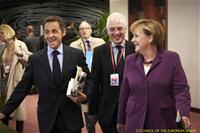 German Chancellor Angela Merkel and French President Nicolas Sarkozy came to the European Council with their “Deauville deal” – the request for treaty changes in order to create a permanent crisis fund for the euro area and to impose political sanctions on euro-countries that violate fiscal discipline. Surprisingly, the Council supported the Franco-German request for changes, albeit it responded reservedly regarding sanctions.
German Chancellor Angela Merkel and French President Nicolas Sarkozy came to the European Council with their “Deauville deal” – the request for treaty changes in order to create a permanent crisis fund for the euro area and to impose political sanctions on euro-countries that violate fiscal discipline. Surprisingly, the Council supported the Franco-German request for changes, albeit it responded reservedly regarding sanctions. 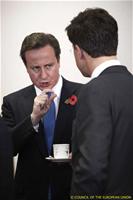
British Prime Minister David Cameron came to the Council with a cause of his own - to fight against a nearly 6 per cent increase of next year's EU budget. Aside from succeeding in putting this issue on top of the agenda, he also won the support of most member states. Last time when Britain had achieved such a turn was when Margaret Thatcher gained the British rebate in 1984.
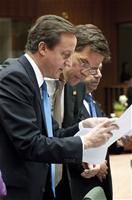 Mark Rutte, the new Dutch Prime Minister, debuted at the Council with a previously pledged support for the British position on the budget. Rutte's debut at the Council was expected also because he came to power with rather eurosceptic promises, including a reduction of the Dutch contribution to the European budget. He is also the one who will have very serious problems if his coalition partner Geert Wilders would ask for a referendum for any Treaty changes, as he has already threatened.
Mark Rutte, the new Dutch Prime Minister, debuted at the Council with a previously pledged support for the British position on the budget. Rutte's debut at the Council was expected also because he came to power with rather eurosceptic promises, including a reduction of the Dutch contribution to the European budget. He is also the one who will have very serious problems if his coalition partner Geert Wilders would ask for a referendum for any Treaty changes, as he has already threatened.
Mari Kiviniemi, a Prime Minister of Finland for only 6 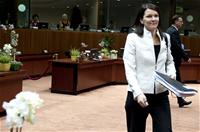 months, came to the Council with a dazzling appearance and a whole pile of documents. It turned out she had made an alternative proposal how to establish a crisis fund without any treaty changes. Obviously it was not adopted, but that didn't overshadow her debut at the European Council.
months, came to the Council with a dazzling appearance and a whole pile of documents. It turned out she had made an alternative proposal how to establish a crisis fund without any treaty changes. Obviously it was not adopted, but that didn't overshadow her debut at the European Council.
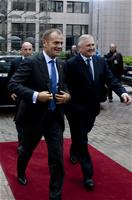 Polish Prime Minister Donald Tusk came to the Council to again raise the issue about deduction of costs for pension reforms from the budget deficit. Nine EU countries (including Bulgaria) have proposed this in a special letter several months ago. Tusk had raised the topic at the Council (according to Boyko Borissov) and according to some European media, he had won support, in return for his support for treaty changes.
Polish Prime Minister Donald Tusk came to the Council to again raise the issue about deduction of costs for pension reforms from the budget deficit. Nine EU countries (including Bulgaria) have proposed this in a special letter several months ago. Tusk had raised the topic at the Council (according to Boyko Borissov) and according to some European media, he had won support, in return for his support for treaty changes.
Bulgarian Prime Minister Boyko Borissov came to the 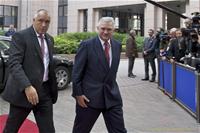 Council ... with a chewing gum. Since it was not his first European Council, the Prime Minister should have known well that the arrival of EU leaders is being broadcast live from the car to the meeting room. He, however, was chewing impassively, as was also the Permanent Bulgarian Representative to the EU Boyko Kotsev (watch the video):
Council ... with a chewing gum. Since it was not his first European Council, the Prime Minister should have known well that the arrival of EU leaders is being broadcast live from the car to the meeting room. He, however, was chewing impassively, as was also the Permanent Bulgarian Representative to the EU Boyko Kotsev (watch the video):
We do not know what kind of a statement Borissov made inside, but outside he said that the leaders had agreed political sanctions to be imposed from 2013. While journalists became aware of the surprise (because no such thing is written in the conclusions, nor was announced by any of the other participants), Borissov hastened to explain that in fact this would never happen in practice.
On the issue of EU budget Borissov said he had supported the request for an increase by 2.9% and not by 5.9%. But to the question how much that would increase Bulgaria's contribution, the Prime Minister replied: "I'm not prepared now, we will have it calculated, I'll tell you. We will not be paying it today." For comparison, his colleague David Cameron explained to the journalists that each percentage point below the proposed 6% budget increase means that 100 million pounds of British taxpayers' money would be saved.
It cannot be denied that Prime Minister Borissov was willing to talk to journalists, but what he said didn't bring much more light to the adopted decisions. On top of that, as he did in June, only Borissov didn't hold his briefing in the specially designed for that purpose Bulgarian briefing room, but instead in the lobby. Although we have repeatedly asked for the reason why, we have not determined it yet.
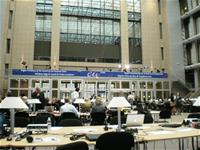 It is worth mentioning also the Bulgarian media interest in the Council - with the exception of several permanent correspondents in Brussels, it was zero. And while the Council was a leading topic for all major European newspapers, Bulgarian media were excited primarily by the sexual orientation of Yane Yanev (a local politician). Unlike us, the Polish colleagues for example, were a large and well organised group. They were sitting together, regularly receiving information from unofficial sources from their delegation to the Council and it was all obvious that the topic was important to them and to their country. The same goes for the British, the Spaniards, etc.
It is worth mentioning also the Bulgarian media interest in the Council - with the exception of several permanent correspondents in Brussels, it was zero. And while the Council was a leading topic for all major European newspapers, Bulgarian media were excited primarily by the sexual orientation of Yane Yanev (a local politician). Unlike us, the Polish colleagues for example, were a large and well organised group. They were sitting together, regularly receiving information from unofficial sources from their delegation to the Council and it was all obvious that the topic was important to them and to their country. The same goes for the British, the Spaniards, etc.
Bulgaria, regardless of the many features of national policy, is a full EU member. It participates equally in the process of decision making. And the decisions taken by this Council, are a really serious change for the Union and will affect directly the decisions of national governments. In this sense, there is absolutely no reason the topic to be neglected by Bulgarian media.
Except one: Bulgaria is not yet a complete part of the European Union in terms of beliefs, values and mentality. In this sense, our country is simply absent from the European Union. The Bulgarian Prime Minister sees nothing wrong in going to the Council "not prepared". Bulgarian media see nothing wrong in engaging with countryside-type political intrigues while ignoring the "boring" European topics. Bulgarian citizens do not see anything except their own dish.
Seen from Brussels, it seems even more inappropriate. And unacceptable.
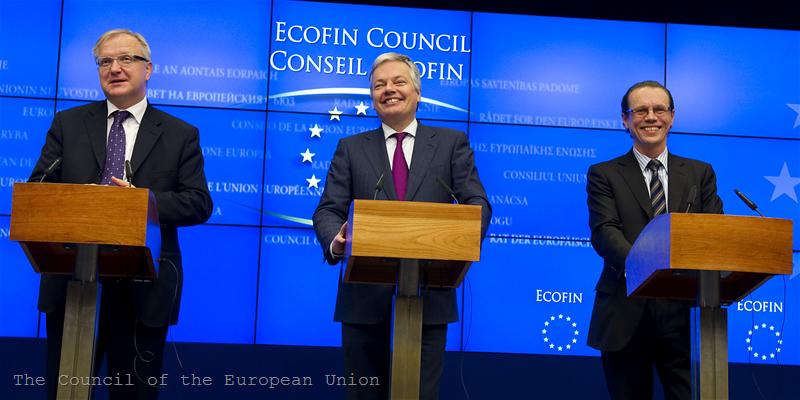 | © The Council of the European Union
| © The Council of the European Union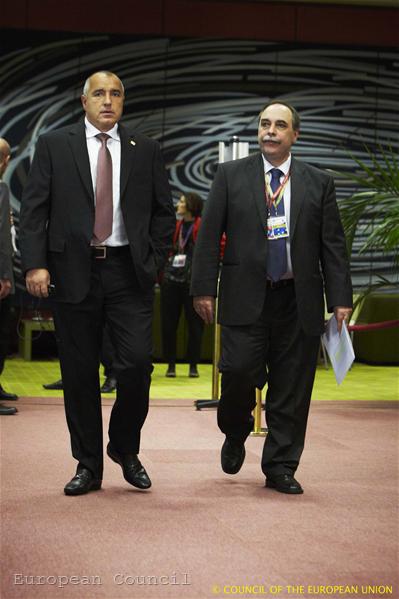 | © European Council
| © European Council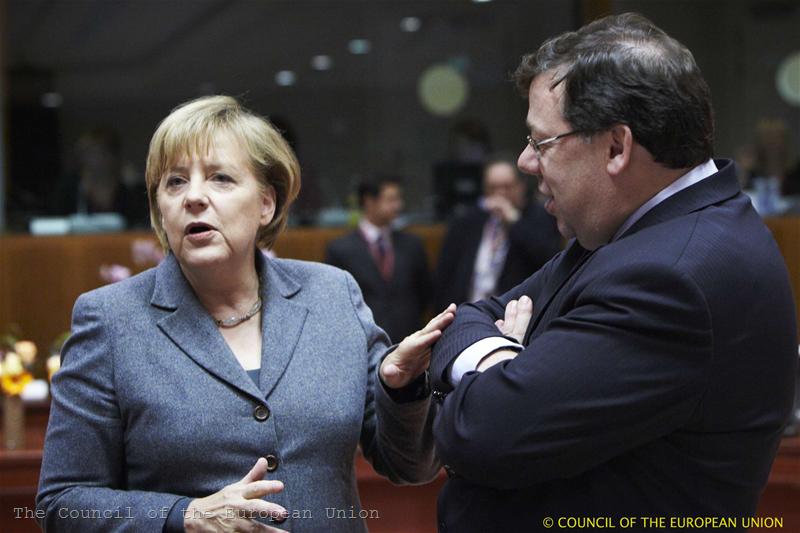 | © The Council of the European Union
| © The Council of the European Union